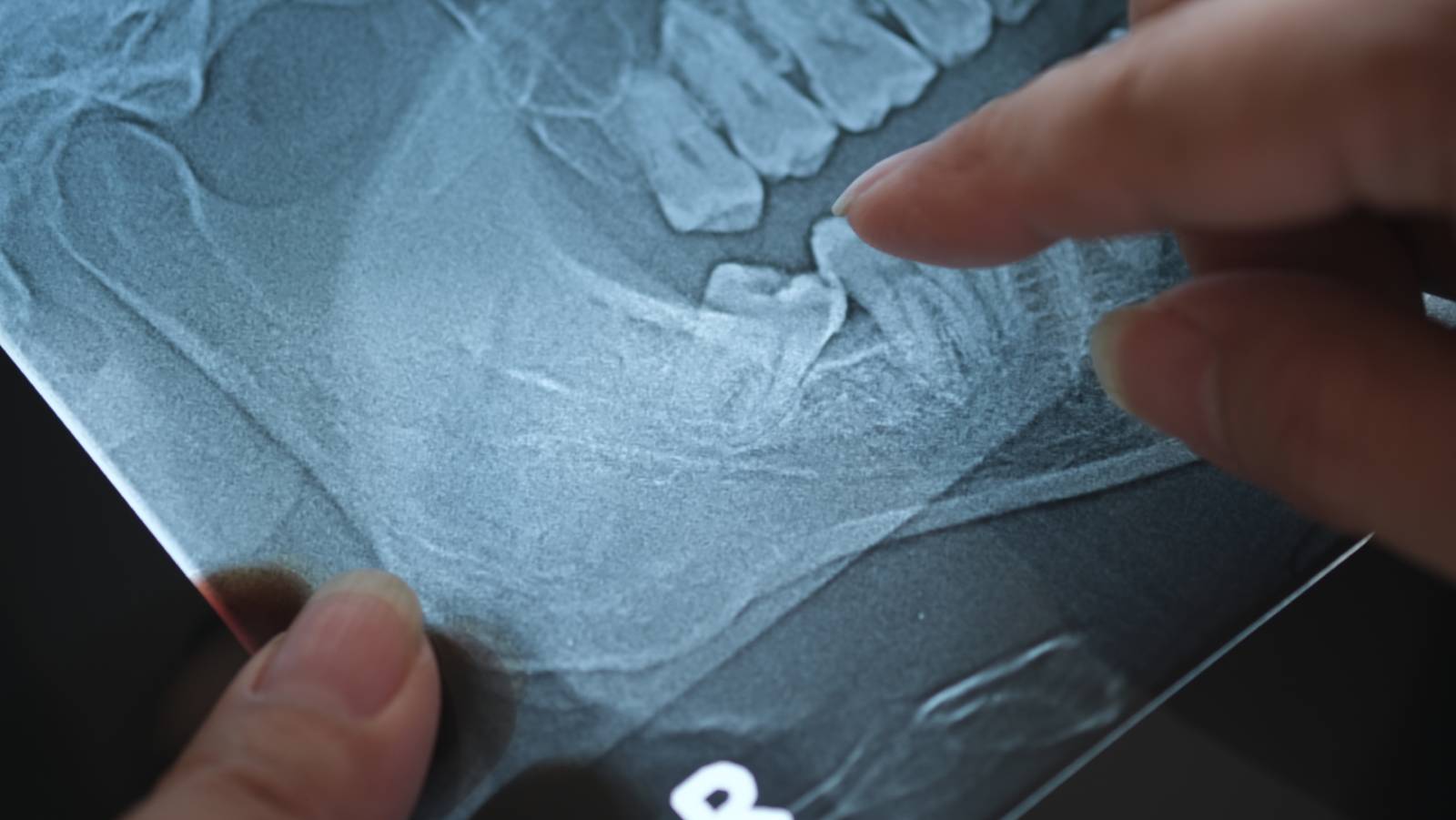While some patients may require tooth extractions[1] to fix issues like overcrowding or impacted teeth before braces or aligners go in, many don’t. Modern orthodontic techniques and personalized treatment planning have significantly reduced the need for tooth extractions before starting braces.
However, some issues (such as severe tooth rot or decay) may result in a pulled tooth before the rest of the jaw or bite can be addressed.
Let’s break down why extractions are sometimes recommended, when they’re not necessary and what the process involves.
Why Tooth Extraction Can be Recommended Before Getting Braces
Though most orthodontists won’t recommend a tooth extraction before starting braces, there are some situations[2] in which it might be necessary:
Tooth Decay or Infection
If a tooth is severely decayed or infected, it may not be strong enough to handle the pressure from the braces, which could cause more pain or even loss of the tooth.
Removing the damaged tooth helps keep your mouth healthy and makes space for the other teeth to move into the right position.
Overcrowding
When there isn’t enough room for your teeth to move properly into place, it’s called “overcrowding”. This prevents your teeth from shifting into proper alignment.
When this occurs, a tooth extraction can create the space needed for braces to allow your teeth to settle into place.
Overbite
Some patients are born with an overbite or protrusion of the jaw, which can impact the way that their teeth and jaw align.
Braces can help pull those teeth back into place, but if some are drastically protruding, they may need to be extracted first.
Impacted Teeth
Common with canines or molars, impacted teeth can cause overcrowding or pain. They may also block your braces from doing their job.
If that ends up being the case, an orthodontist may recommend an extraction.
Stubborn Baby Teeth
If your baby teeth haven’t fallen out yet, it’s possible that you may need to first have them extracted to make way for your permanent adult teeth.
Once they are removed, and your adult teeth can grow in, your orthodontist may then recommend moving on to braces.
Are there Alternatives to Tooth Extraction?
Tooth extraction is never the first option, but in the right situations, it can make a significant difference in the way your braces perform.
At Enjoy Orthodontics, we consider every alternative before recommending an extraction to ensure any treatment supports your long-term oral health and smile goals.
Common Alternatives to Tooth Extraction Before Starting Braces
If you have one or more of the issues stated above, your orthodontist may consider alternative options before deciding to extract a tooth:
Overcrowding Alternatives
Palatal expanders can gently widen the upper jaw, especially effective in children and teens whose bones are still developing. Adults can also benefit by palatal expansion; a well trained orthodontist can use a different design of expander and/or team up with an oral surgeon to achieve a good palatal width.
For older patients, interproximal reduction (IPR) is a technique that involves removing a tiny amount of enamel between select teeth. This can free up just enough space to allow proper alignment.
Starting orthodontic treatment early can also guide proper jaw and tooth development, helping to avoid extractions down the line.
Overbite Alternatives
For patients with overbites or jaw protrusion, orthodontists often use functional appliances in growing children to help guide the jaw into better alignment.
In teens and adults, clear aligners with bite correction attachments, Class II elastics, or even bite turbos can correct overbites without removing any teeth.
A combined treatment with braces and jaw surgery can achieve outstanding results.
These tools work by gradually repositioning the bite and improving how the jaws meet.
Impacted Teeth Alternatives
When it comes to impacted teeth, orthodontists can often recommend a surgical exposure, which attaches a bracket or small chain to the tooth. That chain or bracket is connected to your braces, which gently guides the impacted tooth into place.
Stubborn Baby Teeth Alternatives
Most orthodontists will encourage you to wait for your baby tooth to fall out naturally or allow braces to apply light pressure to encourage its fall.
However, if spacing is a concern, expanders or partial braces can help create enough room for the adult teeth to come in correctly.
What if a Tooth Extraction is Part of Your Treatment Plan?
If your orthodontist recommends a tooth extraction before starting braces, don’t worry.
First, your orthodontist will explain why an extraction is necessary and identify which tooth (or teeth) need to be removed. You may do the procedure in-office or your orthodontist may refer you to a trusted general dentist or oral surgeon.
For most patients, the extraction is performed using local anesthesia and takes less than an hour. If the case is more complex or the tooth is impacted, a more thorough sedation may be offered.
Most tooth extractions have a short recovery time, and though there may be discomfort, healing can take between one and two weeks.
When Can You Start Braces After a Tooth Extraction?
Now, you might be asking: “How long will I have to wait before getting my braces?”
Well, the answer depends on several factors, including:
- How complex the extraction was
- How well the area is healing
- Where the tooth was located
Your Orthodontist may recommend placing the braces before the extractions so he/she can start moving teeth shortly after the extraction, but depending on the case your orthodontist may recommend waiting about one to two weeks before placing braces.
Want to learn more about tooth extraction and possible alternatives? Book a free consultation with Enjoy Orthodontics today to find out what treatment plan might be best for you!
[1] 3D Dental Group, “Will You Need Tooth Extractions Before Getting Braces?” 3D Dental Group, December 27, 2023, https://www.3ddentalgroup.com/patient-information/blog/2023/12/27/will-you-need-tooth-extractions-before-getting-braces/.
[2] Orthodontics Australia. “Why Tooth Extractions Are Sometimes Necessary in Orthodontic Treatment.” Orthodontics Australia, December 19, 2019. https://orthodonticsaustralia.org.au/tooth-extractions/.





